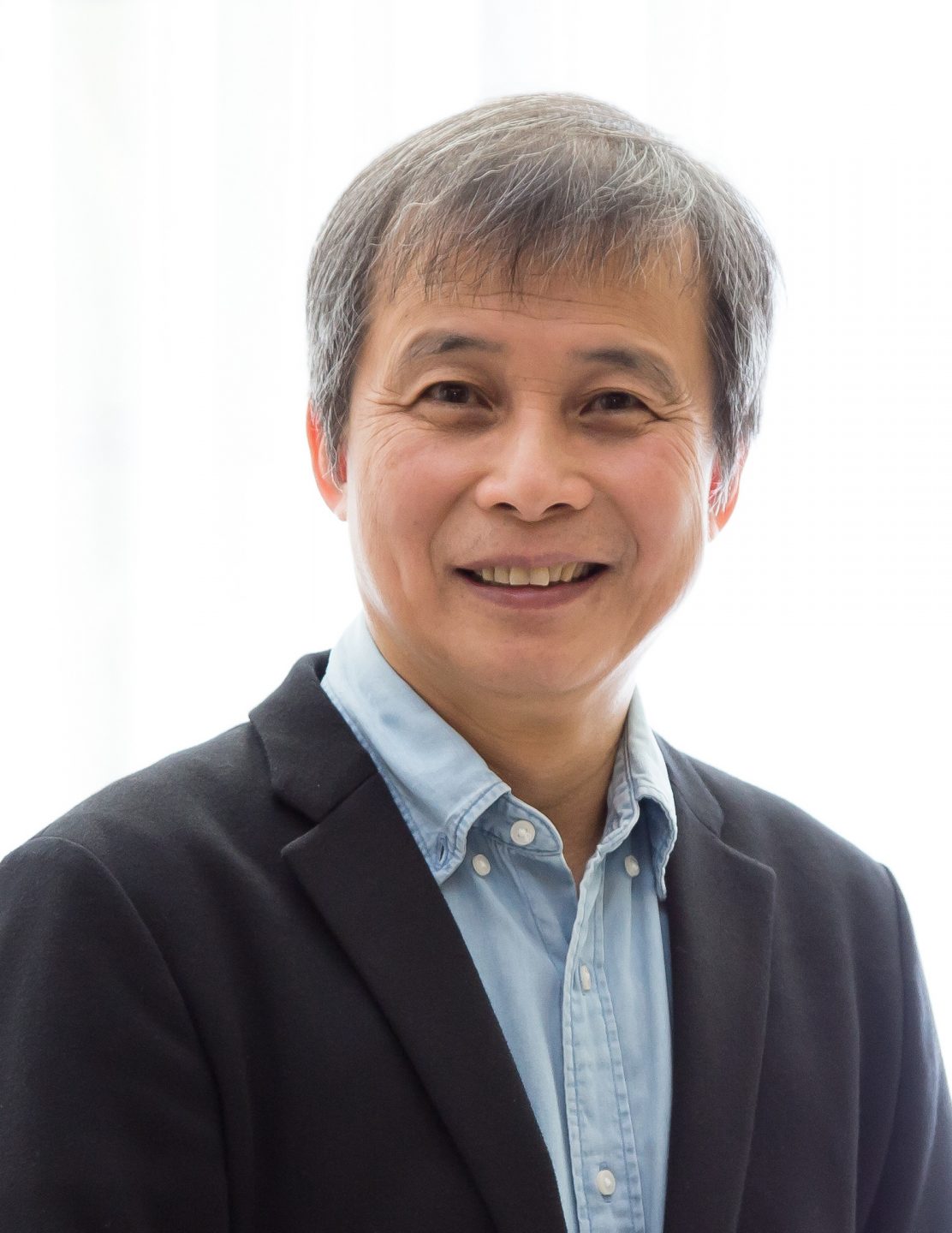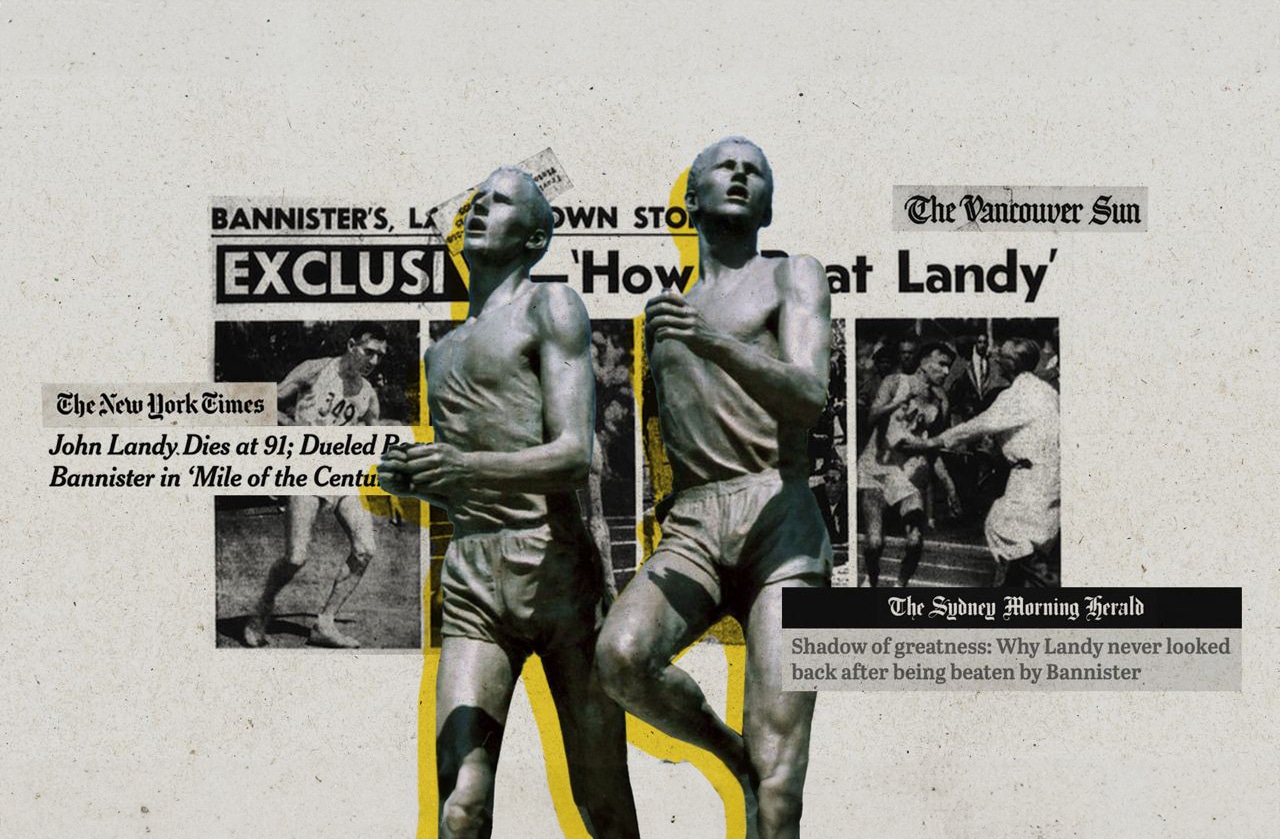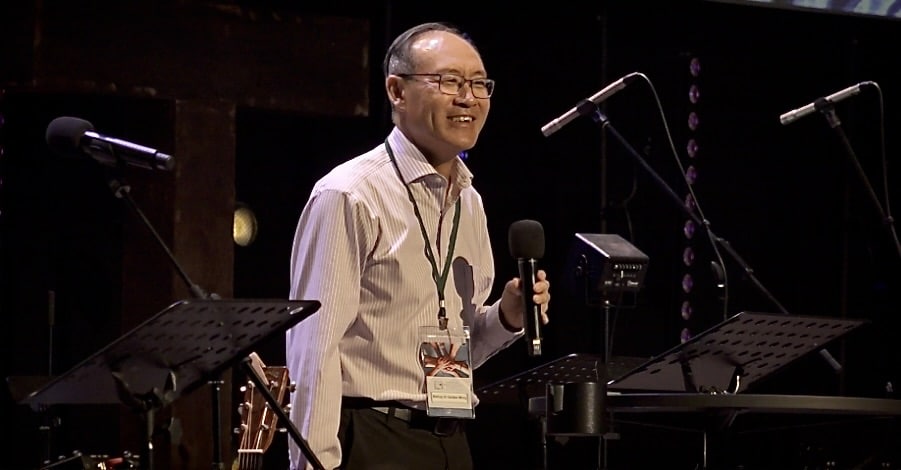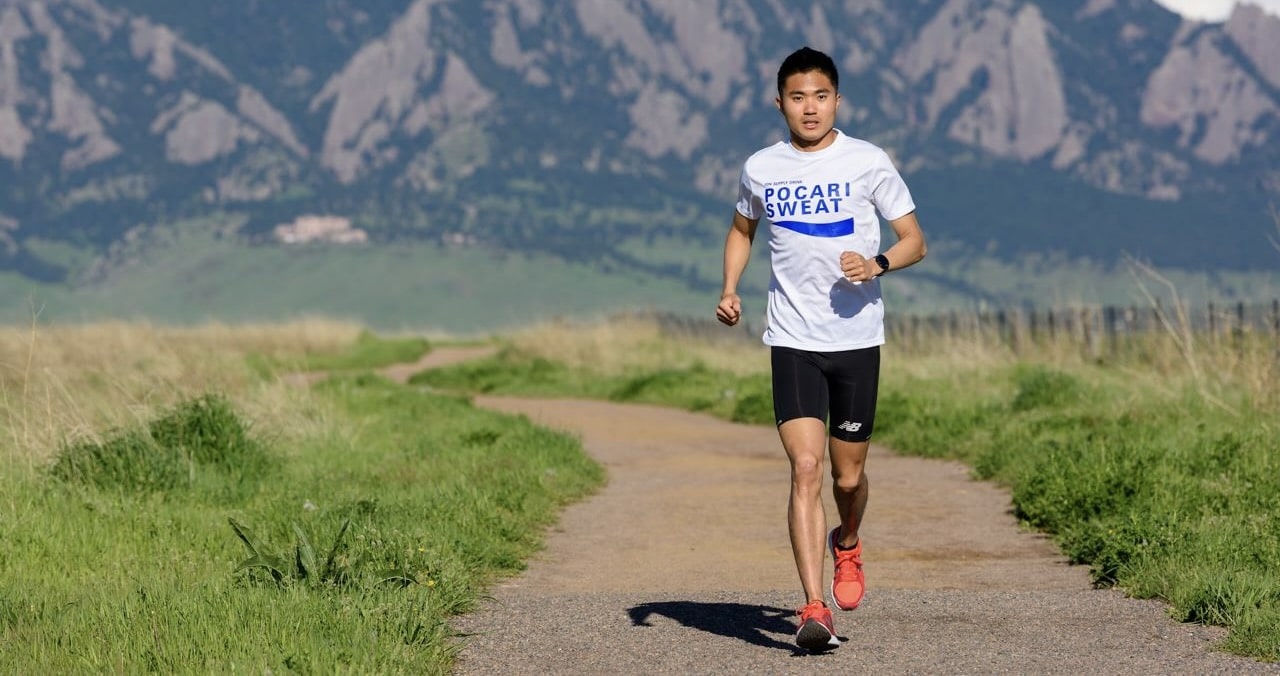Qavah – the unexpected secret to lasting long and finishing strong
Ps-Dr Philip Lyn // November 14, 2023, 6:40 pm

When the road is long and the obstacles many, here's how to stay focussed on the purpose God has set out for you, says Ps-Dr Philip Lyn. Photo by Karsten Winegeart on Unsplash.
In a busy place like Singapore and elsewhere, nobody likes waiting.
Waiting is often seen as curse, a way of life, a bad joke that every one of us must subscribe to. For example, in certain countries where public transport is never on time, you wait in the hot sun.
But God says waiting is the secret to your renewed strength. It is not just waiting, but waiting on the Lord.
Sometimes people get in a queue that snakes around the block – without knowing what they are waiting for. But they say, “It must be good whatever is at the end of it!”
Sometimes waiting is seen as a virtue, as epitomised by Rudyard Kipling’s poem “If“.
Another view is that waiting is the ultimate existential absurdity in life. If you don’t believe there is a purpose in life, and believe that everything is a coincidence and chance, it is meaningless that you are born, meaningless that you die.
But God says waiting is the secret to your renewed strength.
It is not just waiting, but waiting on the Lord.
It is so important that “those who wait on the Lord shall renew their strength. They shall mount up with wings like eagles. They shall run and not be weary. They shall walk and not faint”. (Isaiah 40:31)
The background of Isaiah 40
When Isaiah prophesied these words, the nation of Israel was caught in the big superpower struggle among the fading superpower of Assyria, the rising superpower of Babylon and the ancient superpower of Egypt.
Who should a small nation support?
He is the source of our strength. He is the source of our security.
When elephants fight, the grass underneath dies.
This is when Isaiah told the nation of Israel not to look to superpowers who cannot save them, but to look to the Lord and wait on the Lord.
“Have you not known,” Isaiah said, “The Everlasting God, the Lord the Creator of the ends of the Earth … Neither faints nor is weary and His understanding is unsearchable. He gives strength to the weak and to those who have no might, he increases strength.” (Isaiah 40:28-29)
In other words, He is the source of our strength. He is the source of our security. He is the one who undergirds us and is able to fulfil our destiny.
Then Isaiah says: “Those who wait on the Lord shall renew their strength.”
Active waiting
In the English language, “wait” is a very passive word. For example, I’m waiting for my luck to change. I’m waiting for Mr Right to turn up. I’m waiting for something to happen.
But that’s not what the word means in original Hebrew.
The word qavah in Hebrew has two components.
One, the passive part, where you surrender yourself to the Lord and yield yourself to Him completely because He is God.
The word qavah has an active component where, by faith, you hold on and don’t let go of God.
Two, the active component, where your spirit reaches out to God and intertwines with who God says He is, who He says you are and what His promises are for you.
As you intertwine actively, you will not let Him go. You hold on to Him. That is qavah.
In the English language, we think the word only has a passive component. So we just wait and say: “Okay God, I am going to sit and contemplate quietly and wait.”
But the word has an active component where, by faith, you hold on and don’t let go of God. He is God. He is in charge. He is totally in control. He will see you through.
To you, He says: “You are my son or daughter. You are highly favoured. Greatly blessed. Deeply loved.”
And He has promised: He will see you through; you will have a breakthrough. He will look after your future and your family and the destiny and calling that is put upon your life.
You hold on to Him and you don’t let Him go. That’s qavah.
The best picture of qavah is the picture of the courtship behaviour of eagles.
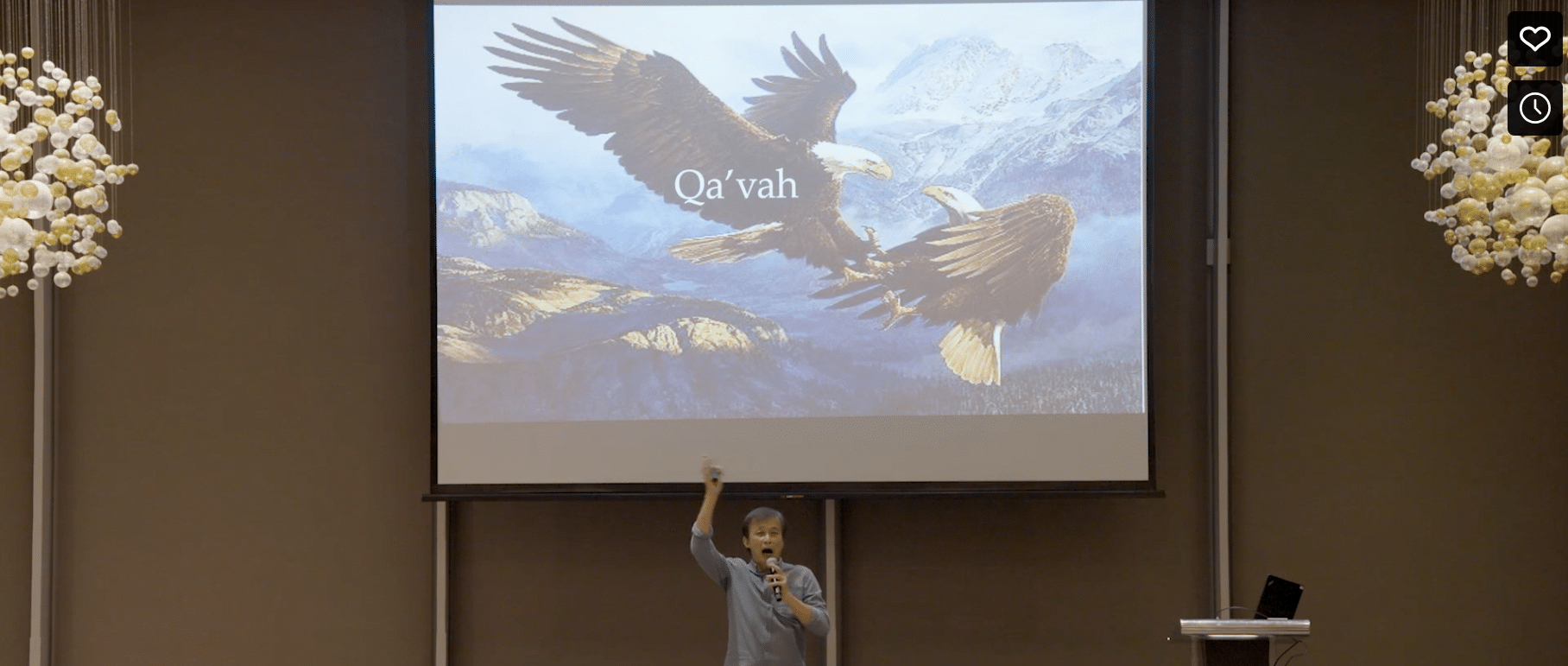
Ps-Dr Philip Lyn at the Antioch Gathering. Screenshot from a video by the Thirst Collective.
When they lock talons and cartwheel down from the sky, what is the female eagle doing? She’s trying to test if the male eagle is committing to her for life.
As you hold on to the Lord, you are like the eagle in the sky, spiralling downwards.
He will hold on to her, and never let her go until just at the point of near certain death.
That holding of talons is qavah.
When you qavah, you’re saying: “Lord, I’ve surrendered to You. At the same time, I’m holding on to You, and I will never let You go, even though we’re tumbling down and things are getting from bad to worse.
“I hold on to Your promises even though the night is getting darker.”
That’s qavah.
In other words, the spirit of qavah is: “If I die, I die.”
When you feel you cannot hold on anymore, you realise: “It’s He Who has been holding on to me all this time.”
We all go through tough times. When things are coasting in ministry, we’ll be hit broadside by rogue waves. We will be blindsided. Often.
Here’s the posture – surrender. “God you are in control. I will surrender to you, I am yielded to You. But I will hold on to You, to Your promises to me, and who You say You are, that You will see me though.
“And I will cling on to who You say I am: I am your son or daughter. You will never let me go.”
As you hold on to Him, you are like the eagle in the sky, spiralling downwards, cartwheeling downwards. And you come to the point when the night gets darker, things get worse. And you hold on to God to the point where you say: “God I can’t hold on to You anymore.”
And that’s when you realise: “It’s not me that’s holding on to Him. It’s He who has been holding on to me all this time.”
And you will never find that out unless you have qavah-ed with Him. You will never know it if you let go.
Three outcomes when we qavah with God
So from Scripture, we know that if we wait upon the Lord, whatever ministry we are in, and as long as we qavah with God, three things will happen to us:
1. We will renew our inward strength
In the 1980s when I was in training, I worked in a heart transplant centre in the UK.
I saw 20-year-old young men dying from a failing heart. They would be walking from here to the end of the room, panting and dragging themselves all the way. Three weeks after their heart transplant, they are running around the football pitch.
In the physical realm, we’ve seen people with heart transplants do incredible things.
It’s an exchange of strength that’s taken place. It’s almost like a new heart for an old.
For instance, Kelly Perkins, who had a double heart transplant, has climbed some of the highest mountains in the world to raise awareness for organ transplant.
It’s an exchange of strength that’s taken place. It’s almost like a new heart for an old.
Now think of what happens in the spiritual realm.
The parallel is that there is a supernatural inner strength when you learn to qavah with God like that.
When you qavah, a transaction takes place.
He will exchange your old strength for His new strength, your physical strength for His spiritual strength, your human strength for His divine strength.
2. We will regain our upward strength
Sometimes when we’ve been doing something for years and years, we do it out of rote and ritual.
How excited are you after 20 years about the Kingdom of God, excited about His people? Excited about God’s love? Excited about the power of the Holy Spirit? Excited about the purpose and vision God is continuing to give you for your life? Excited about His empowering of your life?
The only way you can stay excited is when you have upward strength.
When you qavah with God, you will regain your upward strength.
“But those who wait on the Lord shall renew their strength. They shall mount up with wings like eagles. They shall run and not be weary. They shall walk and not faint.”
Next time you see a storm approaching, go outside and look up into the sky. You will see no birds because they’ve scrambled for cover.
When we have upward strength, we see the big picture even clearer: Why we are still doing what we’re doing despite all the challenges.
But if you see a bird still flying, it’s very likely to be an eagle.
Why? Because the eagle is one of the few birds that can take the adverse winds of a storm and rise about it.
It stretches out its wings against the oncoming air currents and wind and that gives it an upper lift, a thrust. It rises above the storm. It’s not afraid of the storm.
And that’s why we sing “I will soar with You above the storm” (from the song Still by Hillsong Worship).
The ability to fly above storms means that sometimes the enemy can’t get to us because we reach into God’s presence, into the heavenlies.
If you watch Nat Geo Wild, you will see other birds trying to get a free meal from the eagle which has scooped up a jackrabbit.
What the eagle does is lift up and begin to soar with the jackrabbit in its talons. The crows, ravens, gulls and other smaller birds come and peck at the eagle’s legs and wings. They’re hoping that the eagle will drop its prey.
The eagle can’t protect itself because his talons are on his prey.
So what does he do?
The voices of discouragement that are trying to pull us down begin to fade away as we soar higher with the Lord.
He does the one thing that only he can do: He flies higher. And as he soars higher, the other birds fade away and can’t get him.
And this is a strength that God gives us when we learn to wait upon Him, when the winds are battering us.
And that is how our passion gets retained and our vision gets clear. God lifts us up in the midst of that storm as we qavah with Him.
Voices of discouragement try to pull us down, but they begin to fade away as we soar higher with the Lord.
One of a great bonuses of regaining our upward strength is that, when we look down, we see the problems and the challenges as God sees them.
In the middle of the desert in Australia is Uluru (Ayers Rock), a huge stone massif sacred to the Aboriginal people of the area.
One day, I was flying from Brisbane to Perth. And the pilot came over the intercom and said: “Ladies and gentlemen, we’re flying over Uluru right now.”
All of us scrambled to the plane, and there we saw Uluru. From the air, the huge stone massif looks like a pebble. Suddenly this giant stone massif didn’t seem so big anymore.
3. We will revive our onward strength
Inward strength stirs us and drives us on 10, 20, 25 years later. Our love for God is still there. It is still powering us.
God didn’t give you a purpose and a partnership to walk with Him so that you can fade along the way.
When we have upward strength, we begin to see the big picture even more clearly: Why we are still doing what we’re doing despite all the challenges. We’ve probably gone through many adversities and we’re still soaring.
And now, finally, onward strength is the strength to finish the journey and to finish it well, finish it strong.
Isaiah says to us: “They shall run and not be weary. They shall walk and not faint.”
Just like the Apostle Paul, we don’t want to waste our lives. We don’t want to run as one without purpose.
Those who wait upon the Lord shall – not maybe, might, probably might – but definitely will, renew their strength.
We don’t want to box as one who’s just punching the air. We want to be empowered, filled afresh by the Lord, and re-engaged afresh by His Spirit.
God is calling you to finish strong. He didn’t give you a purpose, a vision, a journey, a partnership to walk with Him so that you can fade along the way.
Finish what God has given to you. And as you do, all the time, renew your inward strength. Regain your upward strength. And revive your onward strength.
What’s the secret? Qavah.
Those who wait upon the Lord shall – not “maybe, might, probably might” – but definitely will, renew their strength.
This is an excerpt from Dr Philip Lyn’s talk, Flying High, Lasting Long, at the Antioch Gathering Retreat: Refuel and Refresh in March. The Singapore event was hosted by Far East Organization to foster partnership and collaboration among its partners from community service and Christian ministry for the advancement of God’s Kingdom.
RELATED STORIES:
3 Lessons from how the fastest man in the world ran his race
“If God doesn’t heal, then what?” A question Pastor Philip Lyn grappled with
We are an independent, non-profit organisation that relies on the generosity of our readers, such as yourself, to continue serving the kingdom. Every dollar donated goes directly back into our editorial coverage.
Would you consider partnering with us in our kingdom work by supporting us financially, either as a one-off donation, or a recurring pledge?
Support Salt&Light